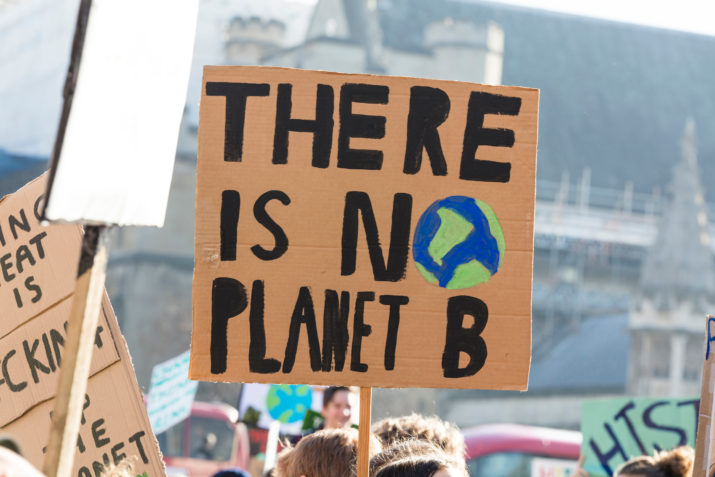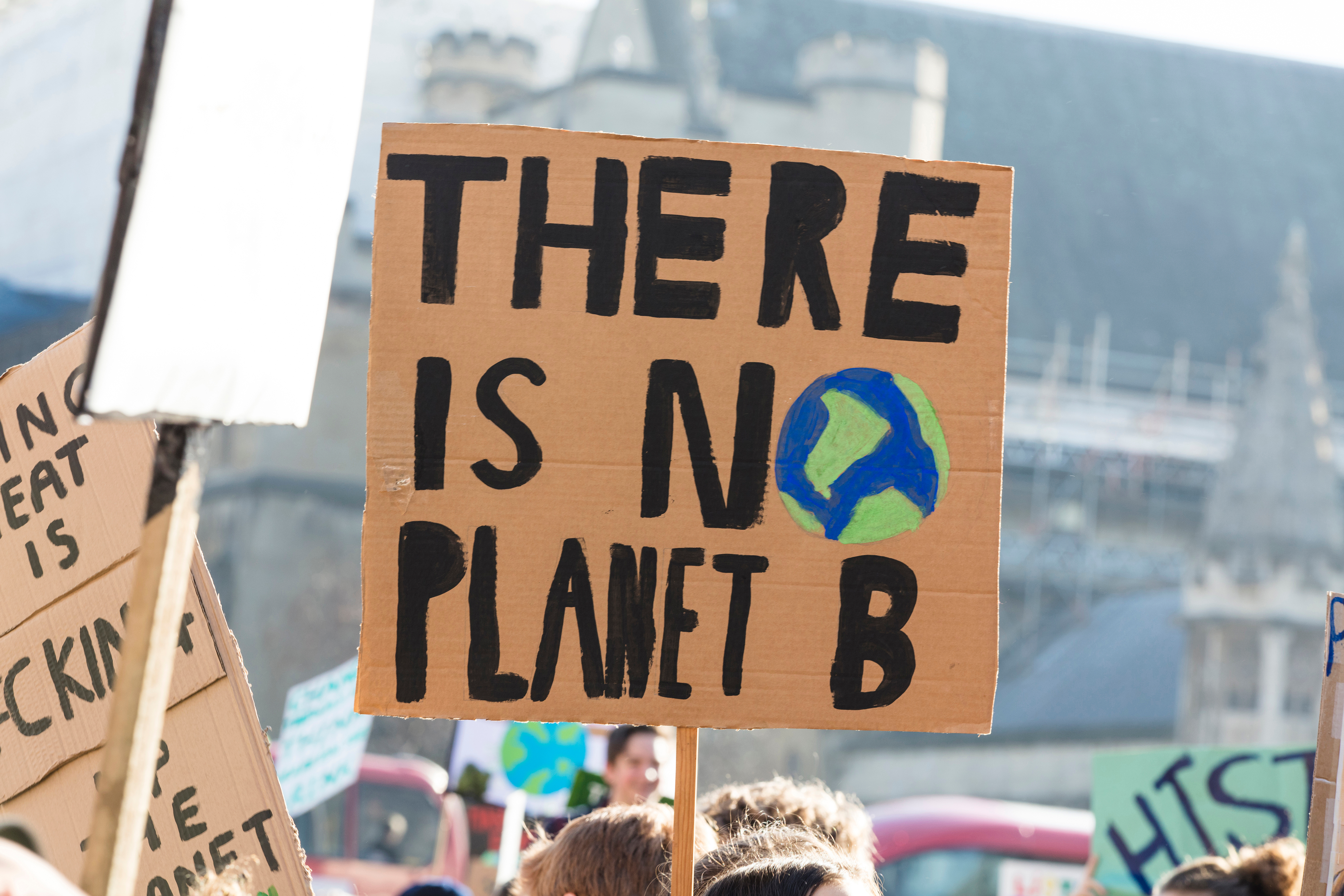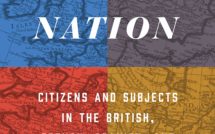

This is part of our Campus Spotlight on Bard College Berlin.
What does citizenship mean today when the power of nation-states to define and secure the future seems to be shrinking even as nationalism is on the rise? How can we be effective political actors in relation to challenges that are beyond the power of any one nation-state to resolve, including those of climate change or war which lead to forced migration? What forms of “post-national” or “cosmopolitan” citizenship are coming into being, and what are their benefits and drawbacks? Can “global citizenship” be something other than an elite aspiration? In order to explore these questions the course “Global Citizenship” was designed jointly by faculty members across the Bard International Network at Bard College (in Annandale-on-Hudson, NY), Bard College Berlin, Al Quds-Bard College of Arts and Sciences (in East Jerusalem), the Faculty of Liberal Arts and Sciences at St. Petersburg State University, the American University of Central Asia (Bishkek) and European Humanities University (Vilnius). Our aim was to learn from and across our different contexts to see how globalization, migration and climate change are being understood, experienced and addressed by people and by states in our different locations, and how these phenomena impact the meaning of citizenship and the possibilities of political agency beyond the nation.
A central aim in constructing this annual course four years ago was creating true exchange across the campuses, while still leaving flexibility for individual instructors to address the issues and develop concepts most relevant in their cases. This was done in part by choosing a set of shared readings that form the core of the class on each campus, but can be built out in different ways. We also created a roster of shared events and assignments that vary by year. This year for instance we designated as course keynote lecturer Ms. Sana Mustafa, a Bard alumna from Syria who has become an important voice for refugee rights. Via livestream to classes at all six campuses, Mustafa argued for the need to include refugee voices in policies designed for this population. In other assignments, groups of students from the different campuses come together virtually to propose models of global citizenship and to share local knowledge, for instance creating a dialogue about the meaning of citizenship and refugee status in Palestine versus in Germany.
SYLLABUS
Course Description
Modern citizenship is a concept associated with nation-states, and at base signifies the status of belonging to a bounded political order and the rights and duties this entails. Yet economic, political, legal and technological globalization increasingly calls state boundaries into question, and borderless problems such as forced migration, climate change, epidemics, weapons of mass destruction, and terrorism require collective action on an equally global scale. In this context, global citizenship has been promoted as a sensibility and indeed as an emerging reality. This course explores the notion of “global citizenship” from the theoretical, cultural, and political perspectives and challenges students to think critically about what global citizenship can and should mean. We will explore current conceptions of global citizenship along with critiques of it, and think about ways in which it may be forged or national citizenship can be otherwise reconceived and reconstructed to respond to the urgent dilemmas of globalization. At the heart of the course will be an interdisciplinary exploration of two of the borderless problems already noted above—forced migration and climate change—through readings and discussion of novels, film, social theory, social scientific research, and policy documents from international organizations; as well as through exchange between students taking this course in different parts of the Bard International Network.
Course Schedule
Week 1
Introduction
-Pocock, “The Ideal of Citizenship Since Classical Times”
Beginning Impressions of Global Citizenship
-Schattle, “Global Citizenship in Theory and Practice”
Part One: Citizenship beyond the nation-state?
Week 2
Understanding Modern Citizenship
-Brubaker, “Citizenship as Social Closure”
-Anderson, “Imagined Communities”
Globalization, International Institutions and the Nation-State I
Guest Lecture on Economic Globalization
-Steger, Globalization: A Very Short Introduction
-Sassen, “Towards a Post-National and De-Nationalized Citizenship”
-Foran, “The Canada Experiment”
Week 3
Globalization, International Institutions and the Nation-State II
-Steger, Globalization: A Very Short Introduction
-Universal Declaration of Human Rights and UN Charter
-Falk and Strauss, “Toward Global Parliament”
Debating Cosmopolitan Citizenship I
-Nussbaum, “Patriotism and Cosmopolitanism”
-Calhoun, “The Class Consciousness of Frequent Travelers: Towards a Critique of Actually Existing Cosmopolitanism”
Week 4
Debating Cosmopolitan Citizenship II
In-class Debate
Bottom Up Cosmopolitanism and Activist Citizenship
-Keck and Sikkink, “Transnational Advocacy Networks in International and Regional Politics”
-Isin, “Citizenship in Flux: The Figure of the Activist Citizen”
Week 5
Imagining Global Citizenship I
-Ghosh, The Shadow Lines
Week 6
Imagining Global Citizenship II
-Ghosh, The Shadow Lines
Imagining Global Citizenship III
-Ghosh, The Shadow Lines
Part Two: Forced Migration as Borderless Problem
Week 7
The Making of the Modern Refugee
-Arendt, “The Decline of the Nation-State and the End of the Rights of Man”
The UN Refugee Framework
-1951 Refugee Convention and 1967 Protocol
-“The United Nations and Palestinian Refugees” pamphlet
Week 8
Palestinian Refugees and the Question of Citizenship I
Guest lecture on Palestine Situation
-Said, “Reflections on Exile”
-Kanafani, “Land of Sad Oranges” and “Letters from Gaza” in Men in the Sun
Palestinian Refugees and the Question of Citizenship II
-Kanafani, “Men in the Sun” in Men in the Sun
Week 9
EU Migration Regimes or, Welcome to Fortress Europe
-Review the Common European Asylum System
-“Important information for applying for asylum in Germany” pamphlet
-Fassin, “Ambivalent Hospitality”
Representing Refugees
Film: 8 Borders, 8 Days (dir. Amanda Bailly)
-Malkki, “Speechless Emissaries”
-Appadurai, “Aspirational Maps: On Migrant Narratives and Imagined Future Citizenship”
Week 10
Theorizing Migrant Citizenships
-Nyers, “Migrant Citizenships and Autonomous Mobilities”
-Fontanari, “Confined to the Threshold”
-Rygiel, “Bordering Solidarities: Migrant activism and the politics of movement and camps in Calais”
Part Three: Climate Change as Borderless Problem
Climate Change: Views from the Future
-Atwood, “Time Capsule Found on the Dead Planet”
-Oreskes and Conway, The Collapse of Western Civilization: A View from the Future
Week 11
The International Framework for Combatting Climate Change
-United Nations Framework Convention for Climate Change
-Ciplet, Roberts and Khan, Power in a Warming World, Ch. 1
State-Centric Climate Politics and The Question of Climate Justice
-Ghosh, The Great Derangement, Part III, sections 4-7
Climate Change Summit
Week 12
Reflecting on the Process of Climate Change Diplomacy
Alternative Environmental Activisms
-Klein, “Blockadia” selection from This Changes Everything
-Nixon, “Pipedreams”
Week 13
What is (or could be) environmental citizenship?
-Barry, “Resistance is Fertile: From Environmental to Sustainability Citizenship”
Part Four: Global Citizenship Reconsidered
Conclusion
Kerry Bystrom is Associate Professor of English and Human Rights and Associate Dean of the College at Bard College Berlin. Previous publications include Democracy at Home in South Africa: Family Fictions and Transitional Culture (Palgrave MacMillan, 2016), The Global South Atlantic (co-edited with Joseph R. Slaughter, Fordham University Press, 2018) and South and North: Contemporary Urban Orientations (co-edited with Andrew J. Webber and Ashleigh Harris, Routledge, 2018).
Published on April 5, 2019
Photo: LONDON, UK – February 15, 2019: Protestors with banners at a Youth strike for climate march | Shutterstock




